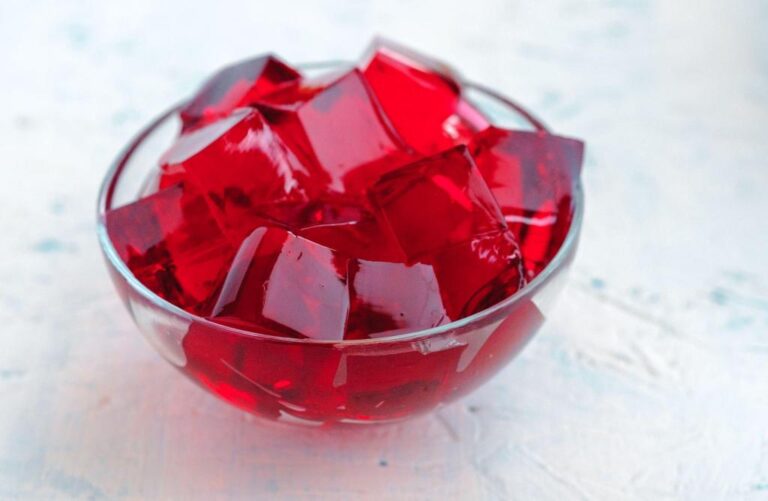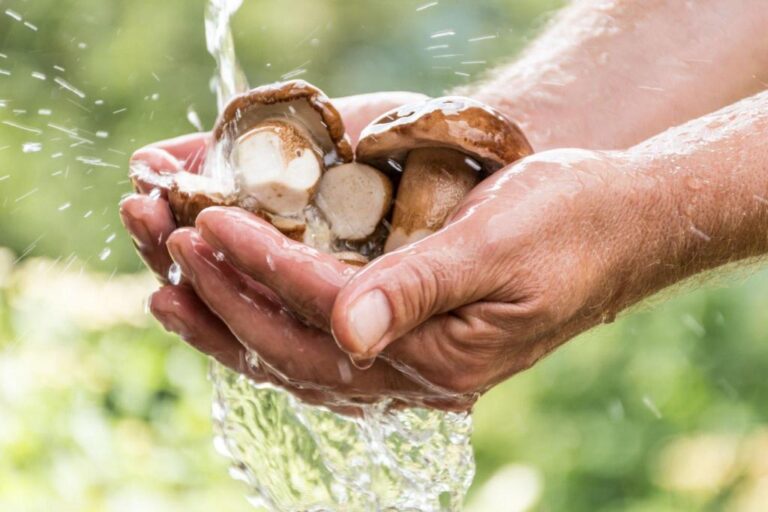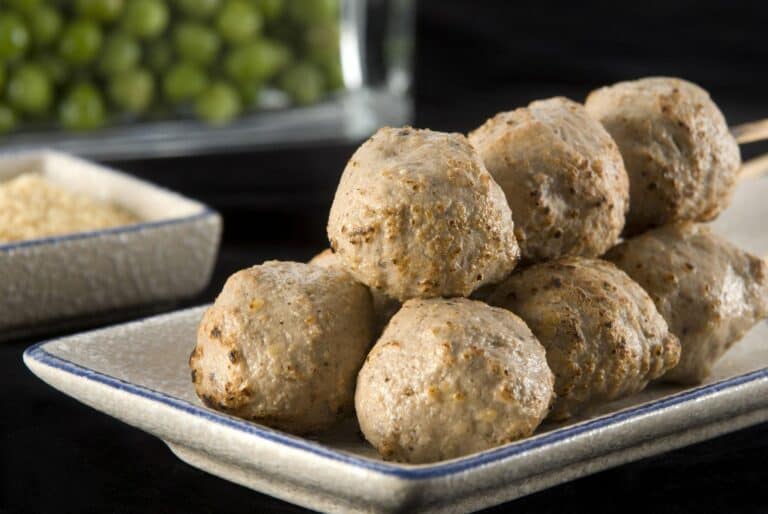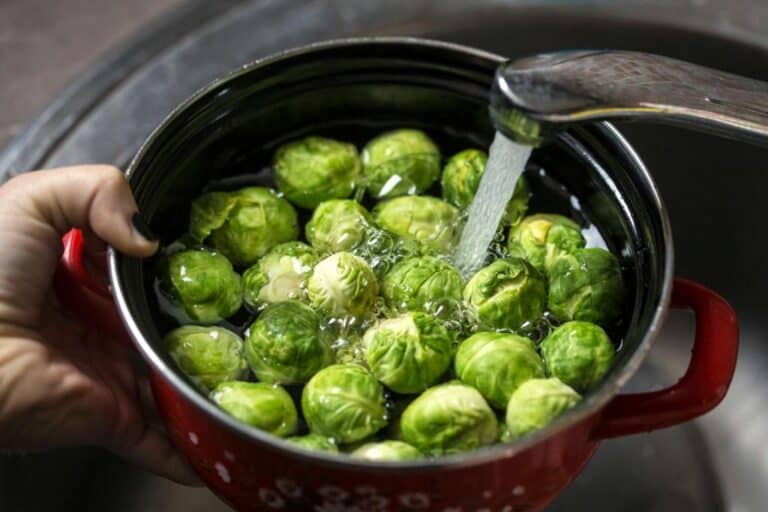Is It Bad To Eat a Whole Can of Beans? How Much Can You Eat a Day?

Beans are a versatile and healthy food that have been a part of people’s diets for a very long time. They come in various types and can be used in different dishes, such as chili, soups, and salads. Not only do they add flavor and texture to meals, but they are also good for your health in many ways, like making your heart healthier and making it easier to digest food.
However, many people wonder about the appropriate amount of beans to consume and whether eating too much can be harmful to their health. After all, who hasn’t been tempted to open a can of beans and eat the whole thing? Is it safe to do so, or should we limit our intake?
In this article, we’ll explore the risks and benefits of eating beans, and answer the questions that may have been on your mind. We’ll dive into the recommended daily intake of beans and explore factors that can impact how much you can safely eat. Whether you’re a bean lover or new to the world of legumes, this article will provide valuable insights into the appropriate amount of beans to consume, so let’s get started!
Benefits of Eating Beans
Beans are packed with nutrients, vitamins, and minerals, making them a great choice as part of a healthy diet. Eating beans can provide you with several health benefits that your body needs.
- The fiber in beans can help reduce cholesterol levels and improve heart health by reducing the amount of bad cholesterol in the blood.
- Additionally, fiber helps to keep your digestive system functioning properly by helping food move through it more quickly and efficiently.
- Eating beans can also help regulate blood sugar levels due to their low glycemic index rating and high fiber content.
- They are a great source of plant-based protein, which is essential for building muscle mass and maintaining energy levels throughout the day.
- Finally, they contain various antioxidants which have been linked to reducing inflammation, boosting immunity and even protecting against certain types of cancer.
All these factors make eating beans an excellent choice when looking for ways to stay healthy while still enjoying delicious food!
Is It Bad To Eat a Whole Can of Beans?
Whether it is bad to eat a whole can of beans depends on various factors, such as the type of beans, your dietary requirements, and your body’s ability to digest beans.
Beans are a great way to get protein, fiber, and important vitamins and minerals like iron, potassium, and folate. But they also have oligosaccharides, which are a type of carbohydrate that is hard for the body to break down.
Some types of beans, such as kidney beans, contain a toxin called lectin, which can be harmful if consumed in large amounts. However, cooking the beans thoroughly can neutralize the lectin and make them safe to eat.
WARNING
If you already have a health problem that affects your digestive system, like irritable bowel syndrome or Crohn’s disease, eating a lot of beans at once may make your symptoms worse. Similarly, if you follow a low-carbohydrate diet, you may want to limit your bean intake, as they are relatively high in carbohydrates.
Potential Health Risks of Consuming an Entire Can of Beans
While beans offer a wide range of health benefits, consuming an entire can of beans in one sitting can lead to some potential health risks. Canned beans can contain up to 25% of the recommended daily intake of salt (570 mg) per can. Some canned beans may also contain environmental contaminants such as nitrates, nitrites, and heavy metals that may pose human health risks
1. Digestive Discomfort
One of the most common issues that arises from overeating beans is digestive discomfort. Beans contain oligosaccharides, a type of carbohydrate that the human body cannot digest.
When these carbohydrates reach the large intestine, gut bacteria begin to break them down, producing gas and causing bloating and discomfort. If you eat a whole can of beans, you might get too many oligosaccharides in your digestive tract, which can cause uncomfortable and even embarrassing symptoms.
2. Nutrient Imbalances
Nutrient imbalances are another potential health risk of consuming an entire can of beans. Beans are a rich source of certain nutrients, such as iron and zinc. But if you eat too many beans, you might get too much of these nutrients, which could be harmful. This is especially true for people who already eat a diet full of nutrients or take supplements.
3. Nutrient Deficiencies
Eating too many beans can cause phytic acid to build up. Phytic acid is a chemical that binds to minerals in the digestive tract, making it hard for the body to absorb them. In small amounts, phytic acid can be helpful, but eating too many beans can cause phytic acid to build up in the body, which can cause nutrient deficiencies.
4. High Blood Pressure
Eating too many canned beans could increase your risk for developing high blood pressure or cardiovascular disease due to their high sodium content
Ways To Incorporate Beans Into a Balanced Diet
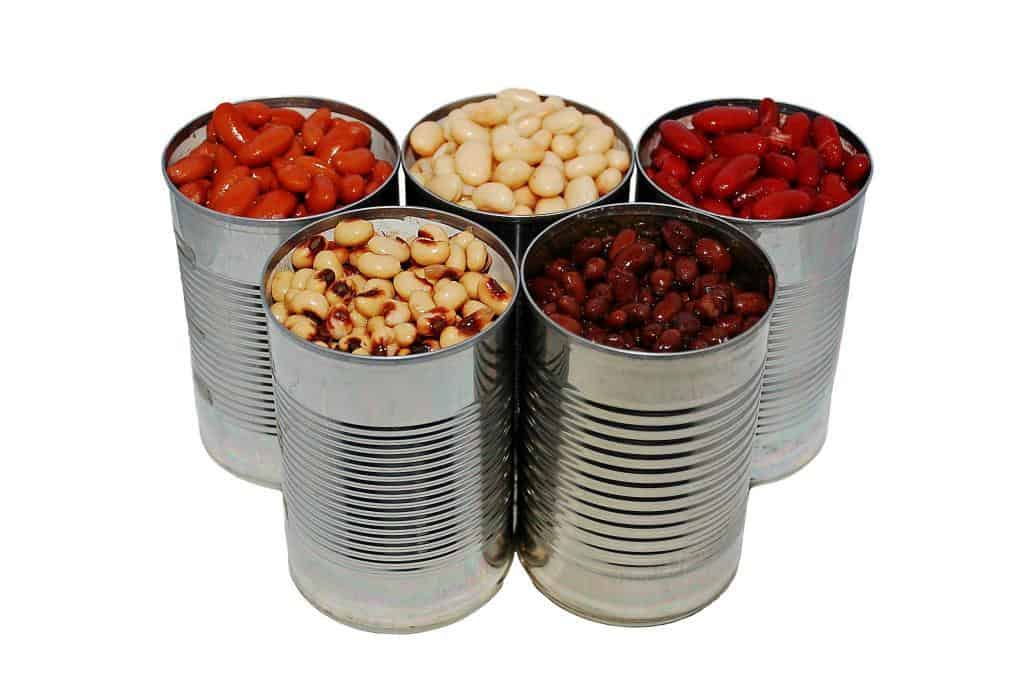
Beans should be a part of your diet, but only in small amounts. If you eat too many beans, you might get gassy and bloated. uncomfortable digestive symptoms. like bloating and gas.
Here are some tips and recipe ideas for incorporating beans into your diet without overdoing it:
- Start slow: If you are new to eating beans, start with small portions and gradually increase your intake over time. This will help your body adjust to the increased fiber and avoid digestive discomfort.
- Variety is key: There are many different types of beans available, including black beans, kidney beans, chickpeas, and lentils. Including different kinds of beans in your diet can help you get a wide range of nutrients and tastes.
- Mix them in: Beans can be easily incorporated into soups, stews, and salads for an added boost of nutrition. They can also be mashed or pureed to create dips, spreads, or even burgers.
- Add them to your grains: Try adding cooked beans to your grains such as rice, quinoa, or couscous. This will not only add protein and fiber but also provide a more filling meal.
- Snack on them: Roasted chickpeas or edamame make a tasty and healthy snack that is high in protein and fiber.
Here are some recipe ideas for incorporating beans into your diet:
- Bean and vegetable soup
- Chickpea and spinach curry
- Black bean and corn salad
- Lentil and vegetable stir-fry
- Hummus or white bean dip with vegetables
- Black bean and sweet potato tacos
Remember that moderation and balance are key to achieving optimal health. Even though beans are good for you, it’s important to pay attention to your body and eat them in moderation to avoid feeling bad.
Incorporating beans into your meals can help promote healthy digestion, manage your weight, and reduce your risk of chronic diseases like heart disease and diabetes.
One easy way to incorporate beans into your diet is by adding them to soups, stews, and chili. These hearty dishes are perfect for cooler months and can be made in large batches for easy meal prep. Choose a variety of beans, such as black beans, kidney beans, or chickpeas to add to your favorite recipes for a delicious and nutritious boost.
Another way to enjoy beans is by incorporating them into salads. Add chickpeas or black beans to a bed of leafy greens, along with other vegetables like bell peppers, cherry tomatoes, and cucumbers, for a filling and nutritious lunch or dinner. You can also try making a bean-based salad, such as a three-bean salad with green beans, kidney beans, and chickpeas tossed in a tangy vinaigrette.
Beans can also be used to replace meat in many dishes, making them a great option for vegetarians and vegans. Try using mashed chickpeas instead of ground beef in tacos or adding black beans to your morning eggs for a protein-packed breakfast. The possibilities for incorporating beans into your meals are endless, so get creative and experiment with different flavors and combinations.
How Much Beans Can You Eat a Day?
How many beans you can safely eat in a day depends on a number of things, like your age, gender, weight, and level of activity. The USDA MyPlate recommends eating 3 cups of legumes (including beans) per week, or about 1/2 cup per day. However, if you are highly active or have higher caloric needs, you may be able to consume a larger amount of beans.
Please consider your individual dietary requirements when determining how much beans you can eat in a day. For instance, if you follow a low-carbohydrate diet, you may want to limit your bean intake, as they are relatively high in carbohydrates. If you’re a vegetarian or vegan, on the other hand, beans can be a great source of protein and may make up a big part of your daily protein intake.
Your body’s ability to digest beans is also an important consideration when deciding how much to consume. If you have stomach problems after eating beans, like bloating or gas, you might want to eat less of them or stop eating them altogether.
So, in conclusion, beans can be a healthy part of your diet, but you should eat them in moderation and think about your own dietary needs and how well you digest food.
The Benefits of Soaking Beans Before Cooking
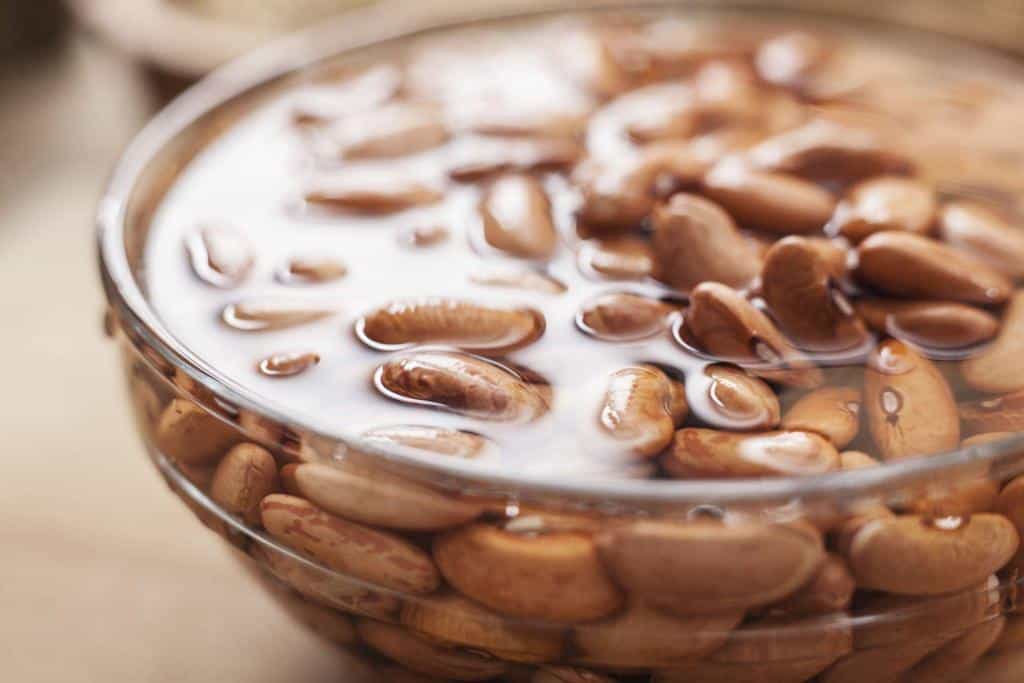
If you’re a fan of beans, you may have heard that soaking them before cooking can have numerous benefits. Soaking beans involves leaving them in water for a period of time before cooking. This can range from a few hours to overnight, depending on the type of bean.
Soaking beans before cooking them can make them easier to digest, especially if you want to eat dried green beans. It will make it softer and get rid of compounds that can make your stomach hurt.
Soaking beans can help to break down the complex sugars and starches that can cause digestive discomfort, making them easier to digest. This can reduce the likelihood of bloating, gas, and other digestive issues.
Soaking can also help to reduce cooking time, which can be particularly beneficial if you are short on time or want to cook beans quickly. When beans are soaked, they absorb water and soften, which can reduce cooking time by up to 50%.
To soak beans, start by rinsing them thoroughly in cold water to remove any dirt or debris. Then, place them in a large bowl and cover with water. Make sure there is enough water to cover the beans by at least two inches. You can also add a pinch of salt or a tablespoon of vinegar to the water to help soften the beans and reduce cooking time. Soak the beans for at least 4 hours or overnight. The longer you soak them, the easier they will be to cook and the more digestible they will be.
When you are ready to cook the beans, drain them and rinse them again. Place them in a pot with fresh water, bring to a boil, and then reduce heat to a simmer. Cook the beans for about 1-2 hours, depending on the type of bean and how long you soaked them for. Make sure to taste the beans regularly to check for tenderness. Once they are cooked, drain them and use them in your favorite recipes.


